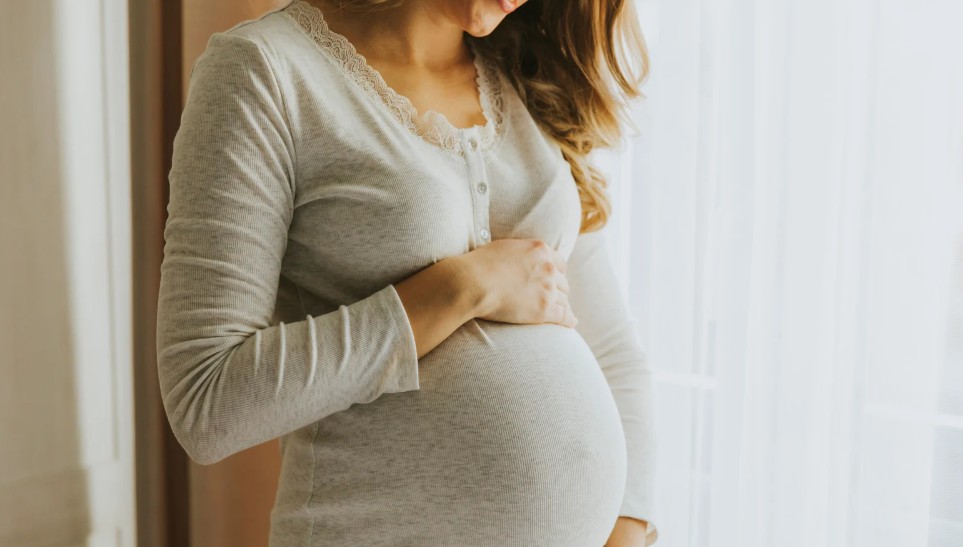Turning 30 can bring a wave of questions and concerns, especially when it comes to fertility. With so much conflicting information out there, it’s easy to feel overwhelmed or even discouraged. But the truth is, many of the things you’ve heard about fertility in your 30s are based on outdated or misunderstood facts.
In this article, we’re breaking down five common fertility myths to help you separate fact from fiction, and to feel more informed, empowered, and confident in your reproductive journey.
5 Myths About Fertility in Your 30s
1. It’s Too Late to Get Pregnant in Your 30s

Fact: It’s true that fertility does start to decline with age. But women in their 30s, especially in their early 30s, still have a strong chance of conceiving naturally.
Are you worried that 30 is too late? Don’t be. While it’s true that age is a factor, many women do still go on to have healthy pregnancies. In fact, research has shown that women in their 30s have a good chance of conceiving naturally.
For example, a study carried out in Denmark looked at fertility rates among 2,820 women who had intercourse at least twice a week. It found that 84% of those aged 25-29, 88% of those aged 30-34, and 73% of those aged 35-40 conceived within 12 menstrual cycles. This indicates that, while age could potentially be a factor, you shouldn’t let it stop you from trying.
2. Your Eggs Are ‘bad’ After 30
Fact: Egg quantity and quality do decline gradually with age, but in your early to mid-30s, they’re still generally viable. It’s not a sudden drop-off.
Women are born with about 1 to 2 million eggs, also known as primordial follicles. By the time puberty begins, that number naturally declines to around 300,000 to 500,000. By the age of 30, the average woman still has approximately 100,000 to 150,000 eggs remaining.
While that might sound like a lot, it’s important to know that only about 300 to 500 eggs will ever actually be ovulated during a woman’s lifetime, the rest gradually fade away through a natural process called atresia.
When it comes to fertility, though, it’s not just about how many eggs you have, it’s also about egg quality. As women age, egg quality begins to decline. But at 30, most women still have a good reserve of healthy eggs that are capable of leading to a successful pregnancy. This is why many women in their early 30s can still conceive naturally without any issues.
3. You’ll Need IVF or Fertility Treatments

Fact: Everyone’s fertility journey is different. Some women will need assisted fertility treatments, like IVF and ICSI, to get pregnant. Other women won’t.
IVF stands for In Vitro Fertilisation. It is a fertility treatment where eggs are retrieved from the ovaries and fertilised with sperm in a lab. The resulting embryos are monitored and one or more are transferred to the uterus to achieve pregnancy.
Many women over the age of 30 worry that they will need IVF, or another alternative fertility treatment, to get pregnant. While it’s true that some women may benefit from IVF, it’s not always needed.
This is because, as we mentioned earlier, many women over 30 manage to conceive naturally. For those who do need fertility assisted treatment, IVF is often available either via the NHS (in some circumstances) or via private fertility clinics (in all circumstances).
4. You’re Guaranteed to Have Complications
Fact: While risks like gestational diabetes or high blood pressure can increase slightly with age, most women in their 30s have normal pregnancies and healthy babies, especially with good prenatal care.
Countless women over 30 have healthy pregnancies every year. However, the risk of certain problems such as miscarriage, chromosomal abnormalities, high blood pressure, and gestational diabetes does increase with age.
For example, one large Norwegian study found the risk of miscarriage to be almost doubled between the age groups 35-39 to 40-44. Even so, in the 40-44 age group, 2 in 3 pregnancies were still successful.
Are you worried about pregnancy risks? If so, that’s understandable. But keep in mind that, while age is a factor, your pregnancy experience will mostly depend on your personal health.
And while it’s possible that you might experience complications, it is also possible that everything will be completely fine. If you’re worried about pregnancy complications, it’s worth talking to a gynaecologist about a fertility test for women and other potential health screenings. They can help identify any potential fertility issues and offer a personalised treatment plan. It’s also worth considering pregnancy counselling and other potential support resources.
5. You Shouldn’t Wait

Fact: Timing parenthood is a personal choice. Many women choose to wait to become more emotionally, financially, or professionally prepared. And they’re still able to start a family later in life.
There is no right or wrong time to start a family. It all comes down to personal preferences. Many women delay starting a family because they want more time to work on career, or to pursue personal goals, like travel. Other women delay starting a family because they want more time to find the right partner, or to work on their relationship.
Whatever the reason, most women still have a good chance of getting pregnant when they feel the time is right. If you’re worried about delaying parenthood, you can talk to a gynaecologist about your reproductive potential.
You can also ask them about ways of preserving your fertility, either through lifestyle changes or through medical procedures, such as egg freezing. That way, when you’re ready, you’ll be in the best possible position to have a baby.
Final Thoughts
Your 30s don’t mark the end of your fertility, they’re simply another chapter in your unique path to parenthood. While it’s true that fertility changes with age, there are things you can do to improve your chances of getting pregnant.
And with the right knowledge, support, and healthcare guidance, you can still go on to have happy, healthy pregnancies well into your 30s and beyond. So, don’t let the myths scare you, your timeline is valid, and your options are real.









Leave feedback about this